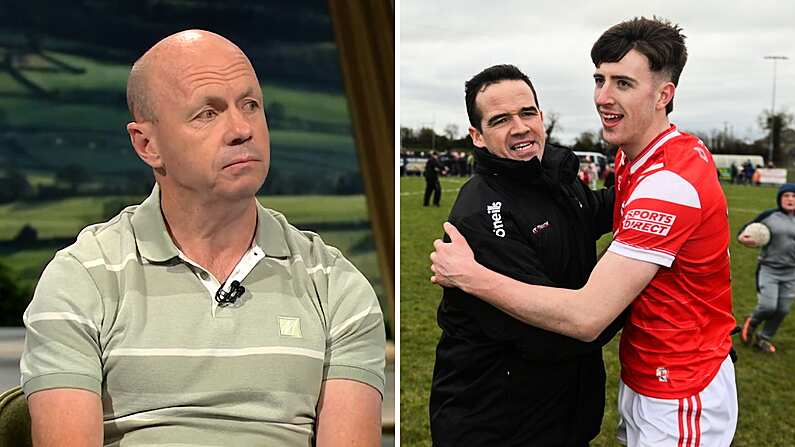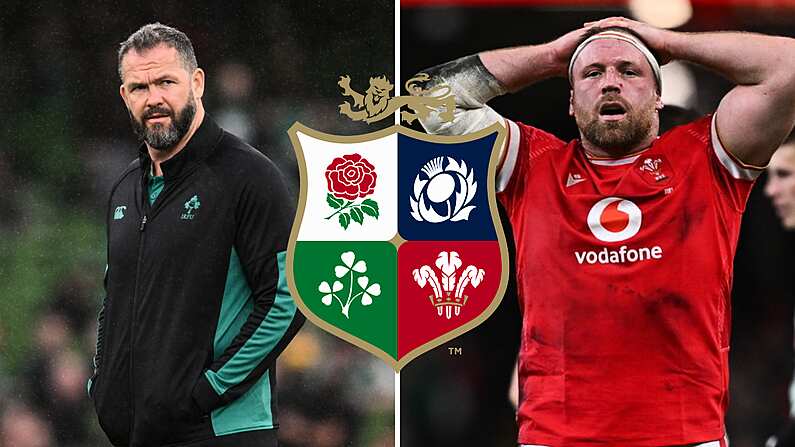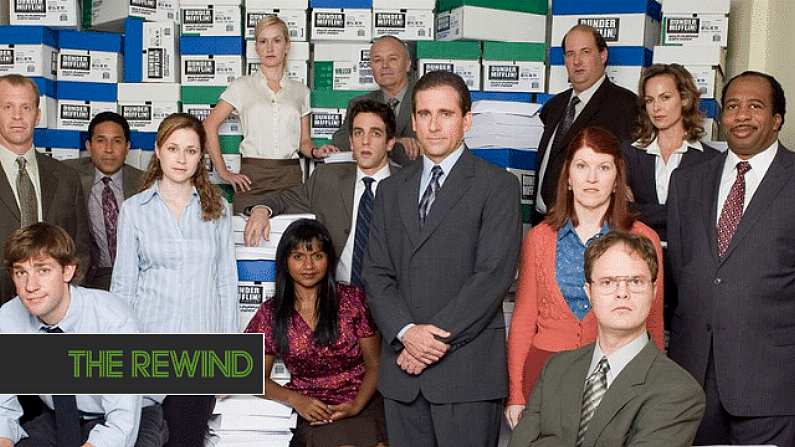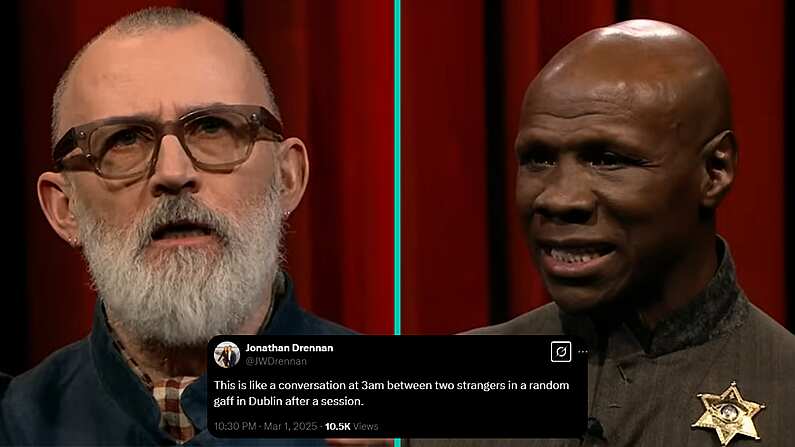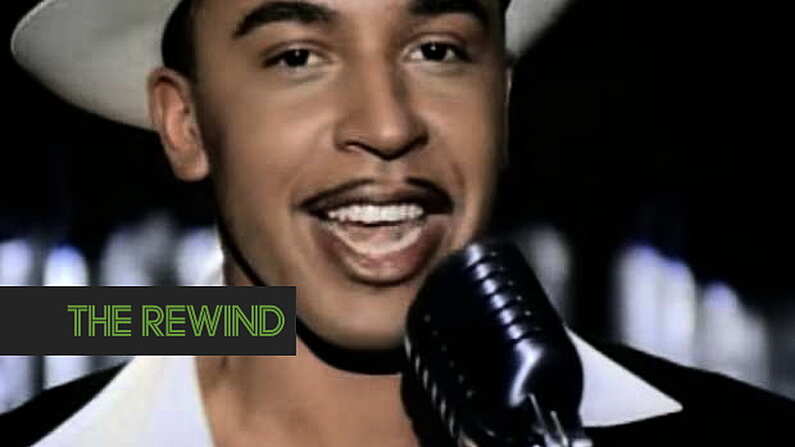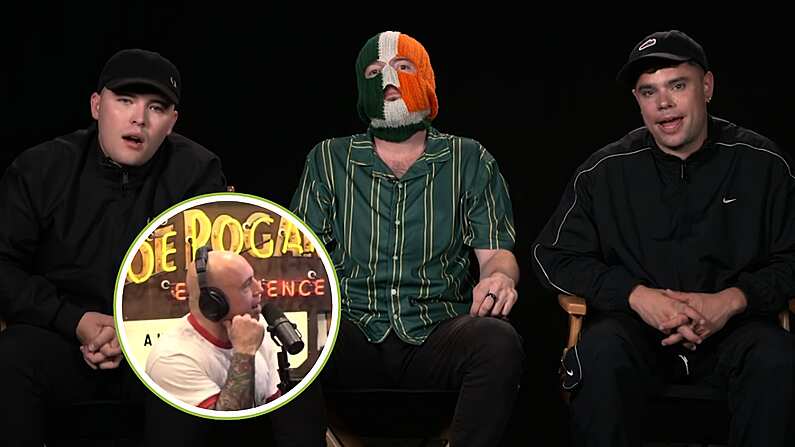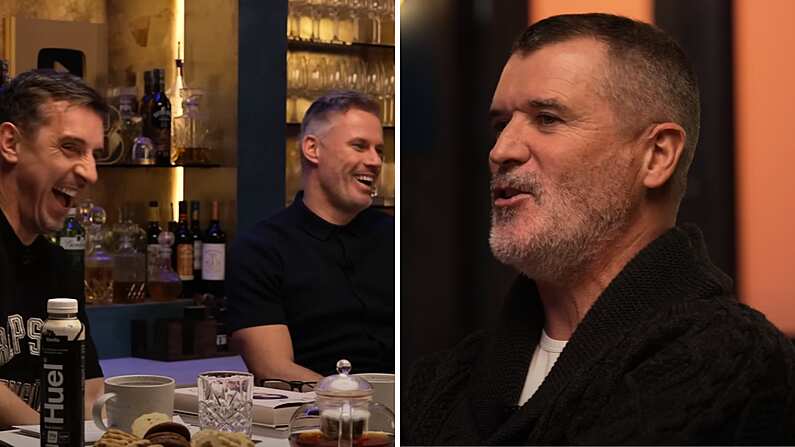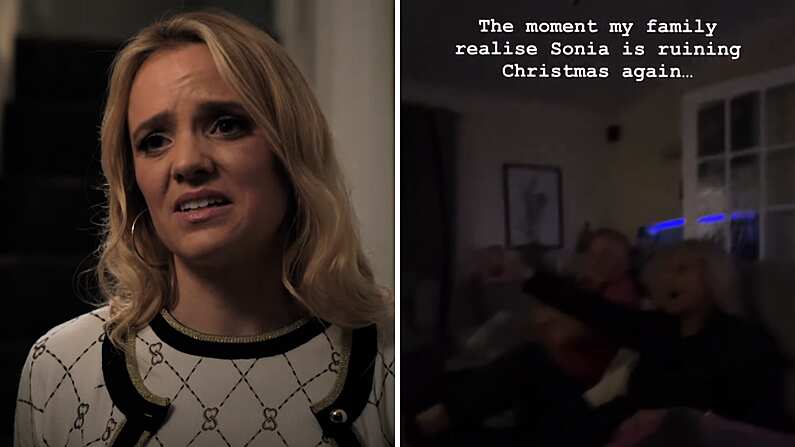On the most recent edition of The Reducer, we branched out beyond our football remit to encompass List of the Lost, Morrissey's shockingly putrid novel. (Yes, that Morrissey). Co-host Seamas O'Reilly enjoys a lonely reign as a kind of Morrissey Fiction Laureate, having previously written a review of the novel that was longer than his college dissertation. With his benevolent permission, we are reproducing that review in full below. The review was first published in October 2015 on his personal website Shocko.info.
An even-lengthier dismembering took place on the podcast, which you can listen to on iTunes or wherever you get your podcasts. Alternatively, you can listen to the episode below.
If you want more details on the podcast, know that it comes recommended by The Guardian and Esquire and a full treatise is posted here.
That's enough exposition. On with the show.
I read Morrissey's List of the Lost
The first thing that grabs you about List of the Lost is how handsomely mounted it is. It genuinely looks great - that black and white image of a runner against the classic orange of the Penguin edition, all the text in that lovely, lovely typeface. It’s the kind of slim volume I’d have popped in my pocket if I knew I’d be wandering about town after school. At 15, that was one of my many, patented shit hot ways of scoring chicks. So long as the title was positioned high enough on the book’s cover, you could stuff a respectable tome into your bottom blazer pocket and the top would stick out and everyone would know you liked foreign stuff with hard-to-pronounce titles. The kind of books that were yellowed by roll-up smokes, the kind that smelled like those sad old wedding dresses in the Red Cross shop in the Diamond.
Waddling around town in your uniform - book in-tow, tie rakishly loosened - it was only a matter of time before you were spotted by a passing nymph, who would catch sight of this rugged intellectual and nod suggestively at said book to get your attention. You'd catch her nod, nonchalantly mess with your hair and say, “Oh this? It’s cool I guess”. Now, at this point, the main effort would be to look intrigued, but steely, when she suddenly and breathlessly demanded that you touch her boobs. Like a strange, reverse version of Clark Kent’s specs, some part of me genuinely thought that a single blazer-bulging copy of L’Etranger would turn my messy nest of red hair and transparent, freckled skin into full-charged, five-alarm, sexual fucking dynamite.
In common with every other gangly, box-limbed dork with a library card, my adolescence was defined by these kinds of notions. This time of my life was underscored by a steady click-track of mortifying pretension, and memories of all this pomposity and sexual frustration kept flooding back as I read Morrissey’s List of the Lost. Firstly, because the book is about a group of teenage friends but also, sadly, because this novel is so cosmically off-putting and pretentious that even my fifteen-year-old self would have balked at its contents.
Like everyone else, I read the reviews and thought, at the very least, this would be an interesting read. This was not the case. But I should admit that some of the mentions it received were so savage, I half-thought there had been a healthy degree of needless exaggeration. It was with this small hope that I read the one review that wasn’t fully negative. It was on the back of the book.
‘Beware the novelist…intimate and indiscreet…pompous, prophetic airs…here is the fact of fiction…an American tale where, naturally, evil conquers good, and none live happily ever after, for the complicated pangs of the empty experiences of flesh-and-blood human figures are the reasons why nothing can ever be enough. To read a book is to let a root sink down. List of the Lost is the reality of what is true battling against what is permitted to be true’
I found it strangely formatted for a back cover mention. All those odd, orphaned statements, a few ellipses, and a haphazard, conversational tone which seemed a poor fit for a review. It actually reads like a hasty transcript of a phone conversation, one that needs another edit or two to really make any sense.
But wait, what’s that underneath the quote?
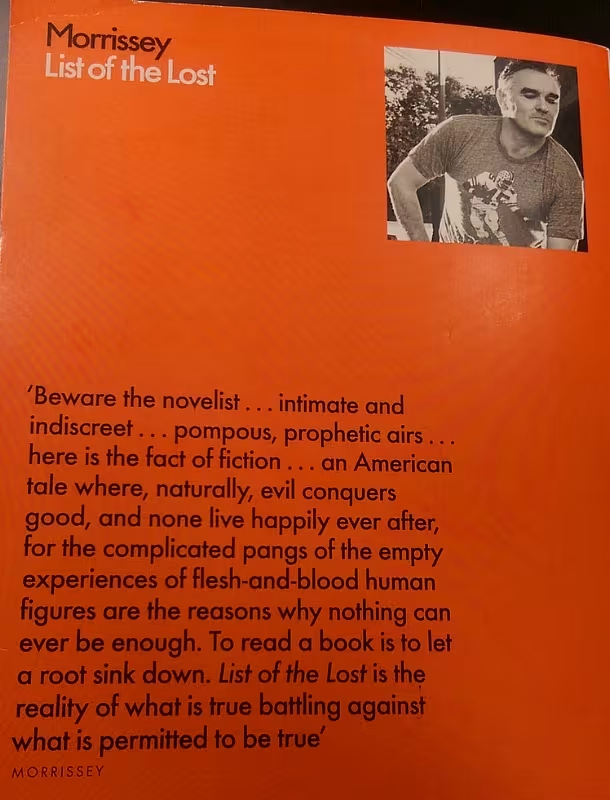
Morrissey. Morrissey wrote this. The only review on the back of his own book. Which means he got a chance to write the first ever review of this novel that wouldn’t say his book made no sense. And he didn't even make that review make sense.
WORST
I don’t think it’s worth beating around the bush. List of the Lost is, without doubt, the worst book I have ever read.
Certainly, if we’re talking cover-to-cover, I can’t think of another that even comes close. Not Steve Bruce’s magnum opus, not Paul Daniels’ autobiography. The only things I could put it alongside would be;
· Legendarily insane Harry Potter fanfic, My Immortal.
· the condolence letter Lindsay Lohan sent the family of Robert Altman when he died.
· *maybe* that graffiti in the toilets of Foyle Street Bus Depot that says RANGERS IS A WANKER.
The plot is Fort Boyard-level stupid, but here’s a brief precis; our protagonists, Ezra, Harri, Justy and Nails, are four student athletes who hail from Boston but talk a lot like the famous musician and novelist, Morrissey. While out training in the woods one day, they’re approached by a strange, elderly homeless man who is not unlike Morrissey, and who proceeds to rant about the evils of society, the royal family and sexual politics. When he unexpectedly makes a lecherous grab for Ezra’s groin, he is inadvertently killed by a single punch and the panicked boys hide his body and flee the scene. Oh and without explanation, an oddly Morrissey-esque old woman – or possibly her ghost – asks Ezra to dig up her murdered son’s hidden corpse, he having been molested and killed by the evil dean of their university, upon whom they all thereafter seek revenge. A few of them do eventually confront said evil dean, - who, it turns out, sounds awfully like Morrissey once he gets going - but not everything goes to plan.
I say all that, but the plot is genuinely irrelevant. I don’t just mean when compared to the price of beanie babies or the horrors of the Somme, I mean it’s irrelevant to the book itself. It is *astonishing* how little List of the Lost tries to resolve its own plot-points. The only real inciting incident in the text is that completely indefensible murder of the homeless man, but his body is never found by the police, and no one else finds out about it so this act has practically no narrative consequences, nor does it even hold any emotional weight for our protagonists since they, and the narrator, all seem utterly convinced that this was a bad thing that happened to our protagonists and not the elderly murder victim himself who totally deserved it because he was old, filthy and mentally ill. In fact, every time this elderly murder victim is mentioned, Morrissey calls him a different series of horrible names to really hammer this point home; “snot-nosed wretch”, “human sickbed”,“schizo hobo”, “mutant”, “mud puppy” etc. Actually, he uses so many awful, horrible names to describe him that I compiled a list at the end of this review, because this paragraph was getting too long. I’ll see you there!
FUCKING HELL

A lot has been made of THAT sex scene, and it is dreadful, but every single page is just as dire and at least that one had some sex in it. The rest of the book is suffocated by a weird, frigid, bloodless energy that never stops being creepy and unnerving.
Morrissey’s sexual complex is writ large across this book. If Freud ever met him, one fears actual dollar signs would pop out of his eyes on springs, to the accompaniment of cartoonish cash-register noises. Suffice to say, Morrissey’s neuroses could likely afford ol' Sigmund a lifetime’s supply of big, thick, veiny cigars.
When it comes to our four runners – pompous, empty-headed dullards to a man – there are endless, lingering descriptions of their hard-bodied physiques, their fitness, their guile. There are oblique references to male sexuality among the boys, brief mentions of hang-ups which prevent men from expressing platonic love etc, but for the most part these things are left unspoken among our main protagonists. This novel has a thing about unhappy, closeted gay men. Aside from those boys, there are only three male characters in the text – their coach Mr Rims (yep), the soon-to-be-murdered homeless man, and the evil Dean Isaac. None of these characters ever meet - or are even made aware of - each other, and yet all three offhandedly reveal themselves to be closeted gay men. What's awkward is these are not sympathetic characters. In fairness, the best of this novel's characters have the wit and charm of a teased bedsore, but still, of those three closeted gay men, one is killed and vilified for groping a teenage boy, and another is a remorseless, child-killing paedophile. Morrissey's view of, and relation to, the closet is fairly puzzling in this regard.
Although, I will say how much fun he's having with these off-the-rack drag names when our protagonists track Dean Isaac to the Helen Earth Drag and Supper Club.

Women, on the other hand, are either wrinkled old crones or the stupid, feckless cows lining up to distract our precious boys from their pure and noble quest. That quest, incidentally, is to take part in a running event - the half mile relay - which Morrissey appears to have made up himself (because fuck you that’s why). When forced, Morrissey does describe the female form, albeit in a manner which suggests that even calling to mind the broadest outline of a woman gives him food poisoning. The boys are coveted by “top-heavy” ladies who stand, “over-made-up” on the sidelines like - classic phrase, this- "moving photograph[s] of sex". They are excitable, air-headed geese or loathsome pigs wreathed in cheap lipstick. Nowhere is this strange mix of smug prudery and clumsy chauvinism more tragically apparent than in the following passage, in which Morrissey explains, as best he can, what it is that makes women so thick and unattractive;
Although the publicly confessed lust of the man must always be made to seem ridiculous and prepubescent, the lust of the women is at first childlike and desperate – as if they know there is something about which they know nothing… Women are less of a mystery because their methods and bodies have been over-sold, whereas the male body speaks as the voice calls a halt. The candid and phenomenal superstructure of Tracey is a moving photograph of sex already happening with her long hesitations and her Elizabeth Taylor non-taming of the shrewd; the alka seltzer voice, the beer mat limply twisting erotically over and over in her hands – as if everything must be a prelude to the night’s concluding act…Sexual success is a logically given reality, and it simply becomes a question of weighing a sexual force that races ahead of rationale against the great poetry and drama of thought, whilst checking on the time minute-by-minute as if it were ticking towards death (which it is).
Morrissey's bracket work alone should be generating some awards buzz.
Passages like the above are so bewilderingly ill-judged that they tear you between multiple different arguments. Do you discuss the mystifying sexual politics of Morrissey’s worldview, his deletion of women from sight for 90% of the text, and his condescension to their behavior and motives? Or do you address the fact that a 56-year-old guy has spent practically half this entire book describing rain pounding upon the sweaty chests and toned legs of teenagers? Or do you limit yourself to analysing the fucking bizarre tone and style of the thing; the description, with its psychotic Wikipedia blankness, reads like a report on the mating rituals of an alien species by a stern, bloodless old colonel, who'd rather be drawing an irrigation map of the central highlands.
REPARTEE
Returning back to Ezra and Eliza – of sexy sex fame - let’s forget about the physical for a second and remember how these two star-crossed lovebirds fucking talk to each other:
Of similar height (should these things matter), they amused each other daily with dilly-dally and doo-lally repartee, the kind which neither would accept from others.
“I have an old soul,” begins Eliza.
“I am a model of healthy humanity,” chops Ezra.
“Friendship is a waste of time,” lobs Eliza.
“I dream of a booze-infused orgy,” shoots Ezra.
“I am a booze-infused orgy,” is Eliza’s reverse twist.
“I have erotic curiosities,” topspins Ezra.
“I can take life as it is and leave it at that,” backhands Eliza.
“I slow down to inspect traffic accidents at the risk of causing another,” lies Ezra.
“You mustn’t keep asking yourself why you feel what you feel,” is Eliza’s dropshot.
“I am a flawless triumph!”
“I am a floored triumph!”
“I take myself very seriously,” is Ezra’s sudden half-volley.
“…therefore I need not to…” serves Eliza.
“I am a puzzle,”
“I, a solution,”
“I am flimsy,”
“I am whimsy,” the ground strokes went on, leading nowhere, for the tiebreak was truced and the play-and-serve love match was an even double.
“I am a puzzle,”
“I am the perfect fiancee,” leaned in Eliza.
“I am the perfect fiasco,” advanced Ezra, headmanning a drop pass.
They do this for pages at a time.
You might here be wondering why he decided to make all their speech directions reference moves in a tennis match? Well, I certainly have no idea, since tennis isn’t mentioned or referenced in the book at any other stage. Moreover, even if a long, labored tennis analogy was exactly appropriate here, why would you then switch away from tennis to the “drop pass” reference at the end? And what the fuck does he think a “play-and-serve love match” is? And even if that was a thing, what would it mean for such a match to be “an even double”? Is that a tie? Why not say tie? WHY NOT SAY TIE?
These are the kinds of rabbit holes we’re talking about here. The cruel, cruel joke of List of the Lost is that even when you're deep into the book and have groaned your way through your thousandth rhyming, alliterative couplet, its awfulness still finds new ways to surprise and appall you. In trying to second-guess how daft it all is, the bulletproof stupidity of the thing outsmarts you time and time again. This is all this book really is; a series of bewildering, meaningless plot-points and character interactions which exist solely to grant Morrissey’s wrist a rest from cranking out his tenth, or twentieth, or hundredth rant about society, politics or the meat industry.
You know when you’re climbing up some stairs and you think there’s another step at the top, but there’s not, so your foot lurches back down on the same level unexpectedly, leaving you all spooked and off-balance? That’s what reading Morrissey’s sentences is like. You expend so much mental energy on each rumble-tumble chain of non-sequiturs, after a while your only hope is that one – just one! - might resolve at the end. But they don’t. Most of the time they don’t even end. Later still, you regress to simply wanting one of his paragraphs to make sense, not in the context of the broader narrative, or believable human behaviour, just sense. Like, literal, grammatical sense.
Seriously, just try and read this sentence out loud.
With just over a month to go before the competition where middle- and long-distance events shape lives forever, our foursome pack life’s inessential essentials in migration for a holistic fortnight at a sportsman’s haven known as Natura, a no-nonsense collegiate retreat where countryside affiliations commune in one heady scholastic clash, where a single-track road led the hidden pavilion of an abandoned plantation shadowed by giant dawn redwoods five meters in girth; where deadly dale led to stumpery woods and slippery stepping stones criss-crossed over dangerously racing rapid rivers.
Imagine the audiobook! It’s only 118 pages long, but it'll be nine hours of Morrissey biting his fucking tongue.
Maybe 50% of the entire book is made up of long-form rants on Morrissey's pet subjects, by any character he likes, or by the omniscient narrator, all in the exact same voice. Sometimes you'll get a three-page rant from the narrator on, say, judges and the meat industry, and then a few pages later you'll get a five-page rant on the same from one of his characters.
Let's compare styles, shall we? Here's a seventy-five-year-old homeless man from Boston.
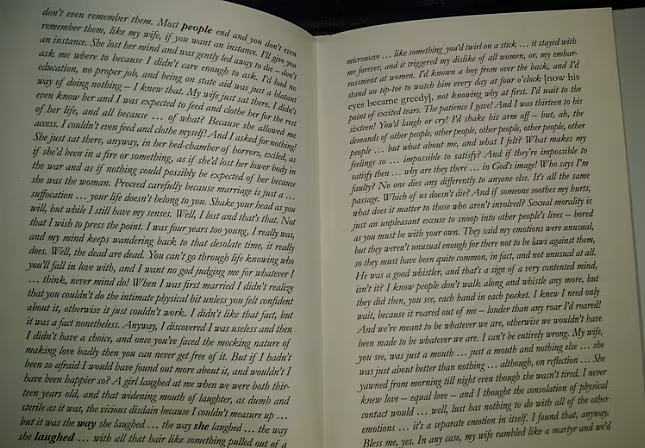
Why not contrast that with the rich, evil, child-murdering Dean Isaac.

Or what about our narrator, featuring a star turn from Eliza, arguably the worst written character in the entire text, who hears about Margaret Thatcher for the first time because Morrissey wants to rant about her. He decided to set this book in 1975, so who better to be up on the obscure, incoming leader of the opposition in the British parliament, than an 18-year-old from Boston?

These don't feel great to read.
After a while you get used to the horror and turning a new page to see two full pages of italics – another rant from another character about exactly the same things –invokes nothing more alarming than the low, impotent frustration of realizing you need to take a shite *just* after you’ve had a shower.
U WOT M8
Morrissey’s inability to describe anything like a normal person is so marked that it never really stops being baffling. How would you describe a sleepy suburban neighbourhood? You know, all quiet and peaceful, late at night? Morrissey went with
the lush houses of beddy-bye shut-eye snoozled in sleepland.
I'm sorry but get the fuck out of here with that.
What would one Boston teenager say to another in the event of their friend’s death? Morrissey, that unerring conduit of the teenage mind, opted for
weep yourself clean, man!
There are lines in this book which are almost confrontationally meaningless, like this zinger from the boys’ athletics teacher, Coach Rims;
You should be forced to live face down in your own feces, as you probably do anyway, if only for general identification purposes.
I will give you fifteen pounds if you can tell me what that means.
Now, this one is very special;
The hair flicks of the gathered women leant in and leaned forwards and then threw their heads back as they laughed.
Real talk: I’ve lost weight from reading this sentence. Let me get this straight, Mozza. There are some women gathered together, and we’re to believe that their hair flicks leaned forwards? Not them, their hair flicks. And those same anthropomorphic flicks of hair then threw their own heads back and laughed? Are you fucking high, bro?
This has all taken too long and I haven’t even mentioned lines like
I do not like you, so go away
or
I now bear witness of your royal crapness
or
the wanton buggery of judicial thuggery
and the truly magnificent observation that
the hang-hungry judges of America remained beagle-beaked on their benches; blindfolded Father Time always ready to throw the book and run up the flagpole.
I haven’t mentioned the fact that midway through the book, Morrissey has a three-page riot talking about the TV show Bonanza.

In which it’s revealed he believes children only inherit genes from their mothers.

WEE GUY
The only thing I do find genuinely charming about the book is their mystifying decision to signal chapter breaks - for there are no chapter breaks - with a little graphic of the runner from the cover. I love this wee guy, and would look forward to seeing him.

It's on such little luxuries you mortgage having to read this thing.
Look, this book is not bad because it’s a bit pretentious or slightly wanky, or merely a bit weird on matters of relationships or sex, or even just because it’s filled with hundreds of unprompted lectures about Morrissey’s hobby horse subjects. Sure it's weird that every single character is from Boston, but has the same exact personality and tone of voice, and the same fascination with the British Royal family and the evils of judges and the meat industry. But mainly, it’s bad because it is genuinely near-unreadable. In real terms. In every sense. From the grammar upwards. Not simply in style, or sensibility, or plot. Morrissey is a bad writer in the way that someone might be a bad cook. It’s all the wrong ingredients, in all the wrong order. Forever. If you list all the bad things about this book, you list every single thing in this book. Yes, the style, its sensibility and plot, but also the grammar, spelling, sentence structure, even the fucking names of the characters. There are never-ending paragraphs that rumble and tumble awkwardly until they come to an abrupt hard-stop, or else career recklessly forward into the next grab bag of cold, wet nonsense. For pages and pages and pages.
It’s easy for us to laugh at our teenage selves, but we forget how often we were able to do that for ourselves, even then. Teenhood isn’t an unbroken torrent of Sturm und Drang. Sure, you often look and act like a twat and, awash with hormones, you may be horribly sad, alone and confused but these are also joyous times, the years when most people discover the music, comedy, art and literature that makes them happier than they’ve ever been, or may ever be again. Despite all the generic barbs about The Smiths being depressing and grim, people forget just how fucking funny they were, how self-deprecating and ironic. When Morrissey was closer to his teen years, he remembered this lightness of touch was a vital part of youth, and he went on to write some of the finest teen-scented pop ever written.
But leaving aside the awful dialogue, the terrible plotting, the meaningless nonsense that fills every last polemic in the fucking thing, the book still leaves you with a nasty, depressing sense of contempt. List of the Lost is a horrifying version of adolescence in which none of the nuance or balance of those years is remembered. There are none of the saving, relatable joys of self-doubt or good humour or even innocence. All we're left with are dead-set pretensions and rigid animosities which have been allowed to calcify into something altogether more sinister; a slanderous, one-note disgust with everyone and everything bar the fit, rippling tummy muscles of some running twats.
9.2/10
That full list of terms Morrissey uses to describe that elderly murder victim;
Snot-nosed wretch
human sickbed
schizo hobo
mutant
mega-gnarly cave dweller
mud puppy
toad of hell
wasted heap
medley of meatball
lumpenprole deadweight
the ever stiffening stiff
the subterranean dogface of our sickly fleshed goner
hispunching-bag face … now stiff with dirt
the syphilis itch of the hobo’s grope



